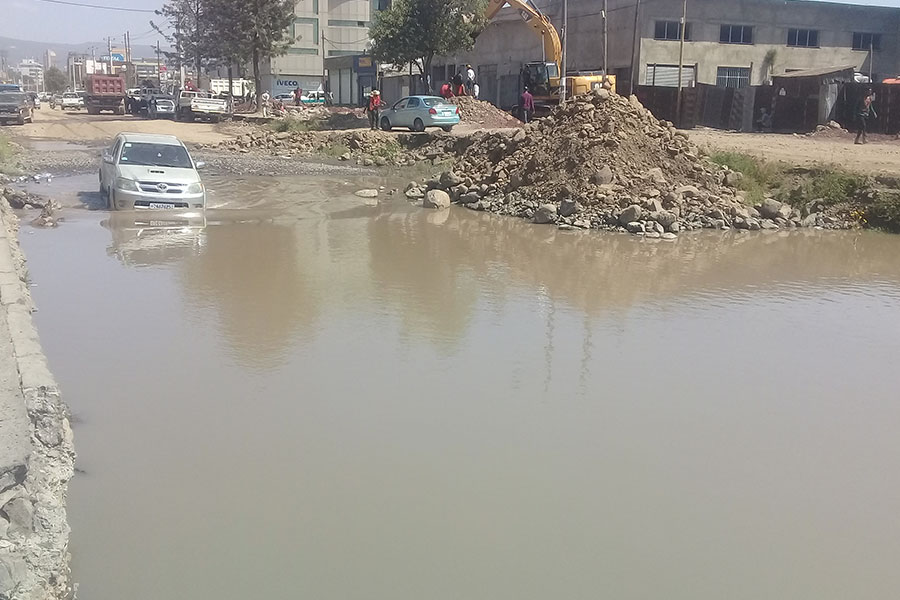
Fortune News | Jan 07,2024
The Ethiopian Customs Commission (ECC) has decided to give importers access to its price valuation database, for long a source of dispute between its officers and the business community.
This will be a departure from a long-held practice whereby importers are informed about the duty rate they pay without reviewing the valuation process.
Developed in-house by the Commission's team, through a technical assistance programme from the International Finance Corporation, the new customs valuation system will enable the Commission to identify the value of imported goods more accurately and set duty rates accordingly. Preparation to deploy the system is expected to be completed this week, launching scheduled for July 27.
"It'll enhance efficiency and improve transparency," said Azezew Chane, deputy head of the Commission. "Under- and over-invoicing are critical problems."
The existing digital valuation system, which has been in use for the past eight years, was developed by an Indian state-owned software company, the Centre for Development of Advanced Computing (C-DAC). Many inside and outside the Commission fault it for a range of drawbacks, despite the Commission's spending of 3.5 million Br. Its technical team could not give support service when the system gets down; it has flaws in service delivery and decision making.
Customs officers were expected to search for products in a database that contains information about millions of goods, with the system not being fully digital. It is not equipped with automated analytics, leaving customs officers the option of exporting data to excel documents and carry out manual computations, says Azezew.
Managers of C-DAC were not available for comment.
The Commission had used the valuation process on imported goods using data stored in CDs before acquiring the digital system from the Indian firm in early 2013.
The Ethiopian government follows six basic sequential stages of customs valuation recommended by the World Customs Organisation: transaction valuation; identical goods valuation; similar goods valuation; deductive valuation; computed valuation; and the fallback method.
The Commission uses transaction valuation to assess whether invoices presented by importers show more than 10pc variation from prices listed in its database. If rejected, customs officials would match the good's price with an identical product in the database. If an identical item could not be found, the valuation is based upon the price of a similar good. A market survey could be conducted to determine the price of the good over the past 90 days if an imported item has no similar good unavailable on the date base. Experts call this deductive valuation.
Officials of the Commission hope to see the new system address these issues, besides offering importers access to view the valuation process on goods they bring into the domestic market and observe how the valuation is computed. The system has incorporated an appeal mechanism when importers have complaints on the process, officials disclosed.
The customs valuation system has been a major hurdle facing importers. Disputes are frequent, with importers complaining over duty rates that are inconsistent with the value of goods set by manufacturers.
Tilahun Chala, an importer of vehicle tyres for over a decade, observed the existing system lacks transparency and leads to delays in the release of imported items, which may drag on for up to six months.
"I don't know where they get the value of goods from," said Tilahun.
Experts do not show as much enthusiasm as acquiring technology may give the Commission the edge to address the drawbacks, but it will not address issues with the legal framework.
"There's nothing new to it," said Yohannes Woldegebriel, a tax law expert who once served the Commission as a prosecutor.
PUBLISHED ON
Jul 18,2021 [ VOL
22 , NO
1107]

Fortune News | Jan 07,2024

Fortune News | May 23,2020

Commentaries | Nov 05,2022

View From Arada | Jan 03,2021

My Opinion | Mar 27,2021

Fortune News | Aug 10,2019

Radar | Nov 06,2021

Radar | May 31,2020

Commentaries | Jun 20,2020

Fortune News | Aug 24,2019

Dec 22 , 2024 . By TIZITA SHEWAFERAW
Charged with transforming colossal state-owned enterprises into modern and competitiv...

Aug 18 , 2024 . By AKSAH ITALO
Although predictable Yonas Zerihun's job in the ride-hailing service is not immune to...

Jul 28 , 2024 . By TIZITA SHEWAFERAW
Unhabitual, perhaps too many, Samuel Gebreyohannes, 38, used to occasionally enjoy a couple of beers at breakfast. However, he recently swit...

Jul 13 , 2024 . By AKSAH ITALO
Investors who rely on tractors, trucks, and field vehicles for commuting, transporting commodities, and f...

Jun 28 , 2025
Meseret Damtie, the assertive auditor general, has never been shy about naming names...

Jun 21 , 2025
A well-worn adage says, “Budget is not destiny, but it is direction.” Examining t...

Jun 14 , 2025
Yet again, the Horn of Africa is bracing for trouble. A region already frayed by wars...

Jun 7 , 2025
Few promises shine brighter in Addis Abeba than the pledge of a roof for every family...